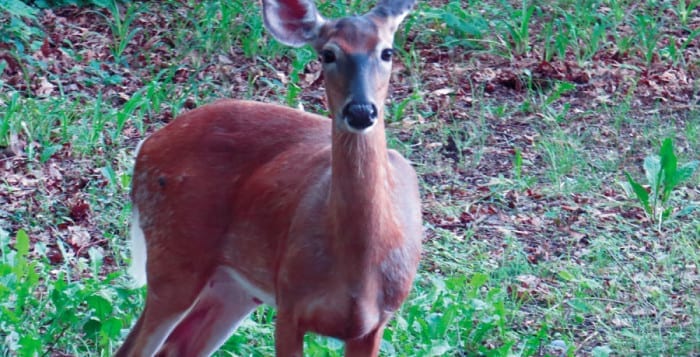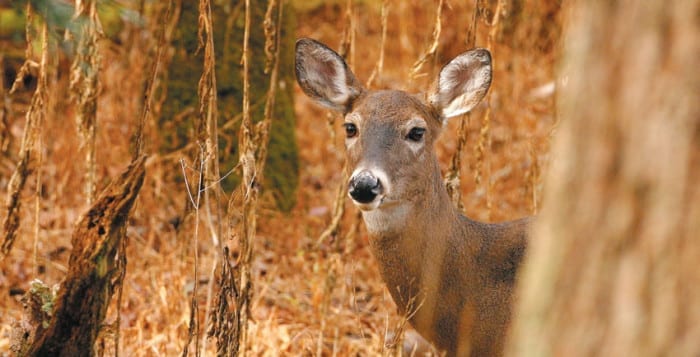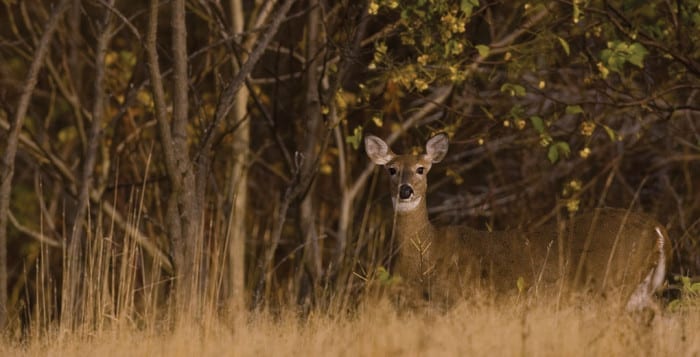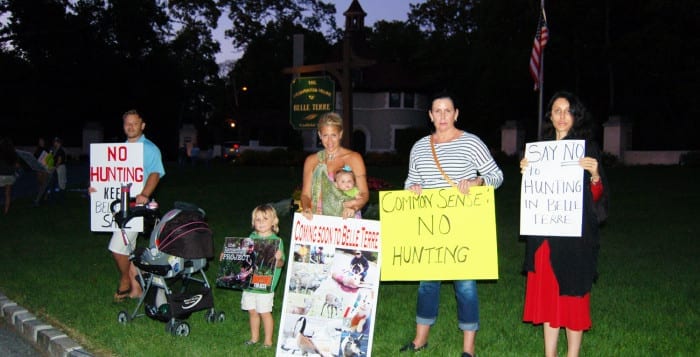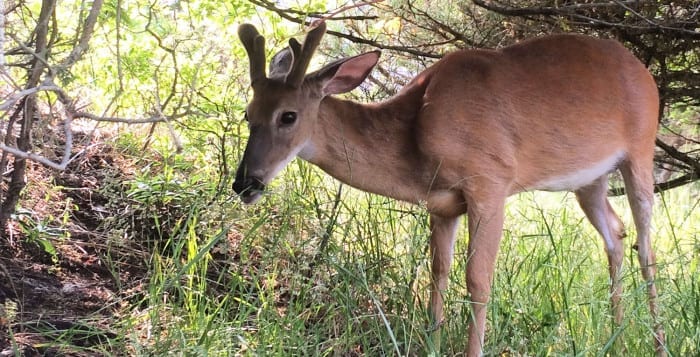At what point does a neighborhood nuisance become a problem that warrants lethal action?
A few North Shore communities have been debating whether to legalize hunting deer in their residential areas, after complaints relating to an increase in their region’s deer population. Hunting advocates say the ticks deer carry have been transmitting Lyme disease to humans; the animals are eating their garden plants; and the deer are moving traffic hazards.
As a result of the complaints, Huntington Town officials have given residents of Eaton’s Neck the green light — under certain restrictions — to hunt deer with longbows on their own properties. Officials in Belle Terre Village, after receiving emotional pushback from many community members, did not take action on a similar proposed hunting law. The issue is still up in the air in Head of the Harbor, where officials recently floated a proposal to allow hunting there as well.
There are many problems with allowing people to hunt deer in a residential location: It will not have the desired effect; it is an unreasonable and disproportionate response to nature; and there is great potential for negative consequences.
It’s not a problem for nature to occur around Long Island, it’s merely a fact of life. We hear residents bemoan the loss of open space and cry out against development. Well, this isn’t “The Sims” life simulation video game — we can’t cherry pick the greenery and sprawling beaches, and kick out the deer. Or rather, we shouldn’t.
There are nonlethal ways to patiently deal with the deer issue: Spray deer and tick repellant in your area; use tick repellant on yourself when you go outside; check your body and clothes for ticks when you hang out in tall grass or woods; use plants that deer do not eat; and drive slowly on small back roads that are surrounded by woods.
Let’s not forget that hunting is dangerous in a residential area because accidents can — and do — happen.

